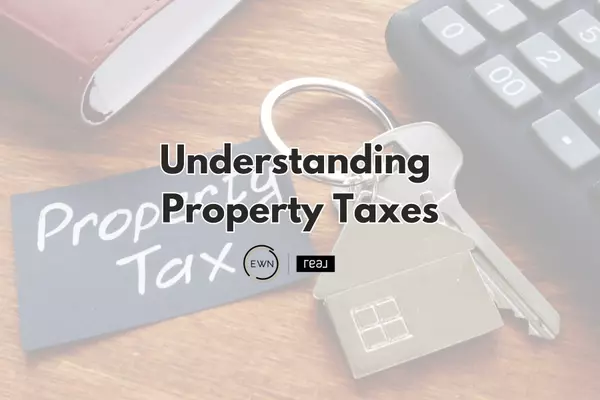Real Estate Investing 101
Real Estate Investing 101: A Beginner's Guide

Are you curious about how to build long-term wealth through real estate investing? Whether you're a first-time homebuyer looking to turn your property into a profitable asset or a beginner investor ready to diversify your portfolio, understanding the fundamentals of real estate investing is essential. In this comprehensive guide, we’ll break down the basics of real estate investing, explore popular strategies like rental properties and house flipping, and provide valuable resources to help you make informed decisions.
What is Real Estate Investing?
Real estate investing involves the purchase, ownership, management, rental, or sale of real estate for profit. Unlike other investment vehicles such as stocks or bonds, real estate offers tangible assets and multiple ways to generate income and build equity. From earning monthly rental income to benefiting from long-term property appreciation, real estate can be a powerful tool in building financial freedom.
Why Invest in Real Estate?
Here are a few compelling reasons many choose real estate as an investment:
- Cash Flow: Rental properties provide regular monthly income that can exceed expenses, generating positive cash flow.
- Appreciation: Real estate tends to appreciate over time, increasing the value of your investment.
- Tax Benefits: Investors can deduct expenses like mortgage interest, property taxes, and depreciation.
- Leverage: You can use borrowed capital (a mortgage) to increase the potential return on investment.
- Tangible Asset: Unlike stocks, real estate is a physical asset that you can improve and manage directly.
Types of Real Estate Investment Strategies
- Rental Properties
- Long-Term Rentals: These are residential properties rented out for a year or more. They provide stable, predictable income and long-term equity growth.
- Pros: Steady cash flow, appreciation, tenant pays down your mortgage
- Cons: Requires property management, potential for tenant issues
- Short-Term Rentals: Think Airbnb or vacation homes. These generate higher income per night but involve more active management.
- Pros: Higher income potential, flexibility
- Cons: Seasonality, legal restrictions, higher turnover and maintenance
- House Flipping
- Flipping Houses: Involves buying undervalued properties, renovating them, and selling for a profit within a short time.
- Pros: Quick profits, creative satisfaction
- Cons: High risk, renovation costs, market volatility
- House flipping requires a strong understanding of local market trends, renovation costs, and timing. It’s essential to budget accurately and leave room for unexpected expenses.
- Real Estate Investment Trusts (REITs)
- REITs allow you to invest in real estate without owning physical property. These are companies that own or finance income-producing real estate.
- Pros: Liquidity, passive income, diversification
- Cons: Less control, market risk
- Learn more about REITs from Nareit.
- Wholesaling Real Estate
- Wholesalers secure properties under contract and assign that contract to a buyer for a fee.
- Pros: No need for significant capital, low risk
- Cons: Requires strong networking and negotiation skills
How to Get Started with Real Estate Investing
- Educate Yourself
- Read reputable books such as Rich Dad Poor Dad by Robert Kiyosaki or The Book on Rental Property Investing by Brandon Turner.
- Listen to podcasts and follow industry blogs like BiggerPockets.
- Set Clear Goals
- Determine your objectives: Are you seeking monthly cash flow, long-term appreciation, or both?
- Define your budget and risk tolerance.
- Evaluate Markets
- Look for markets with population growth, strong job markets, and affordable housing.
- Use tools like Roofstock to research rental property markets.
- Secure Financing
- Get pre-approved for a mortgage or explore creative financing options like partnerships or hard money loans.
- Learn the difference between conventional loans, FHA loans, and investment property loans.
- Build a Team
- Surround yourself with a trustworthy team: real estate agent, contractor, property manager, lender, and CPA.
- Analyze Deals
- Use metrics like cap rate, cash-on-cash return, and gross rent multiplier (GRM).
- For a detailed breakdown, check out this guide to analyzing rental properties.
- Start Small
- Consider house hacking: buying a duplex, living in one unit, and renting out the other.
- Start with a single-family rental before scaling up.

Mistakes to Avoid as a Beginner
- Underestimating Expenses: Always overestimate repairs and maintenance.
- Ignoring Local Laws: Understand landlord-tenant laws and zoning regulations.
- Overleveraging: Avoid borrowing more than you can comfortably repay.
- Skipping Inspections: Always conduct thorough property inspections.
- Falling in Love with the Property: Base decisions on numbers, not emotions.
Is Real Estate Investing Right for You?
Real estate investing isn't a get-rich-quick scheme. It requires due diligence, patience, and a willingness to learn. However, for those committed to the journey, it offers unparalleled opportunities to build wealth and passive income.
Whether you're looking to supplement your income, retire early, or simply take control of your financial future, real estate provides a solid path to achieving those goals.
Conclusion
Real estate investing is a time-tested way to build wealth, create passive income, and take control of your financial destiny. By starting with the basics, learning from experts, and taking thoughtful action, you can begin your journey with confidence. Whether you're buying your first rental, flipping a fixer-upper, or just exploring the field, now is the perfect time to educate yourself and invest in your future.
Still wondering where to start? Explore beginner-friendly rental listings and investment tools at Roofstock or join the conversation with experienced investors at BiggerPockets.
Helpful Resources and Tools
- BiggerPockets Blog: Comprehensive articles, calculators, and a community of investors.
- Zillow Research: Market trends and data insights.
- Realtor.com Real Estate News: Up-to-date industry news and advice.
- Roofstock Marketplace: Turnkey rental properties.
- U.S. Census Bureau Housing Data: Demographics and housing trends.
Categories
Recent Posts










